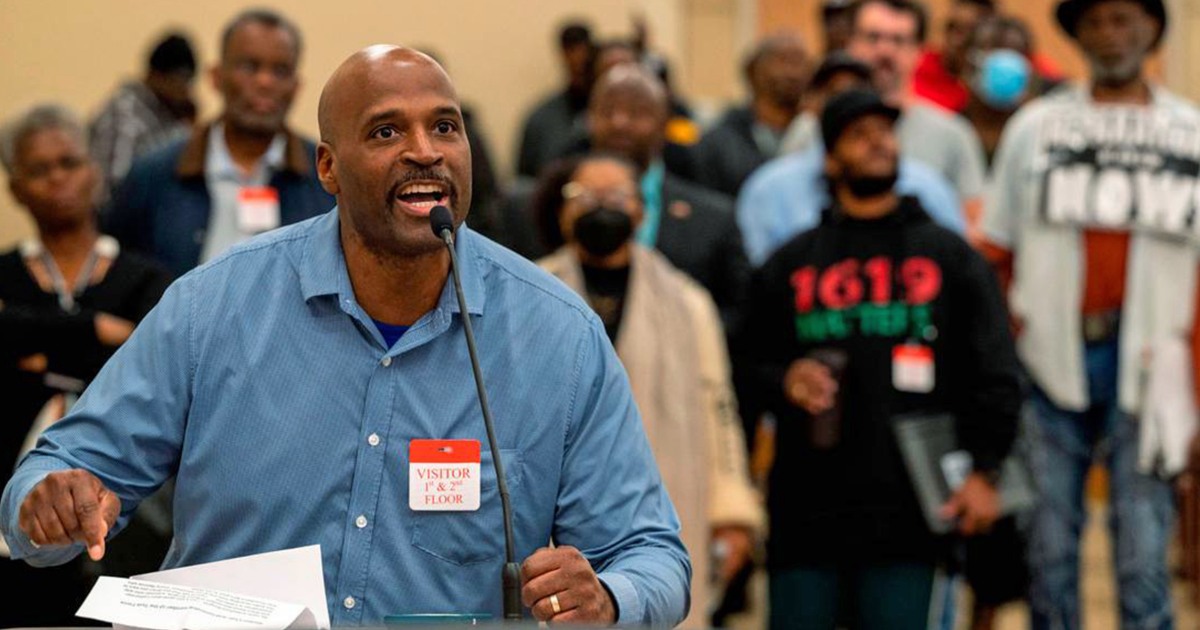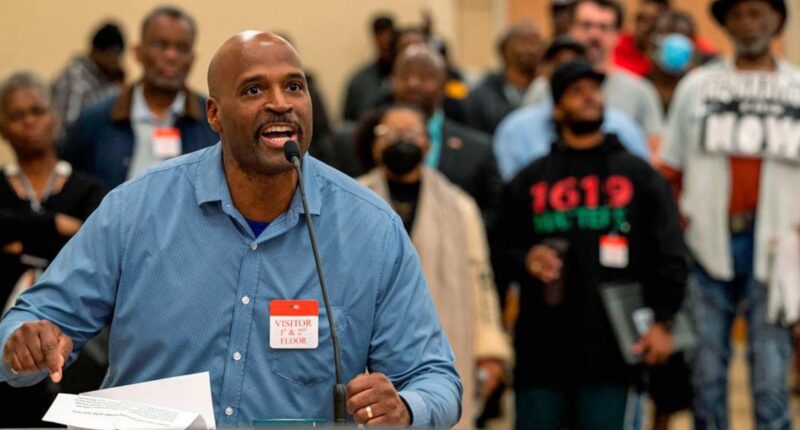
SACRAMENTO, Calif. — California’s highly anticipated reparations report, released Thursday, outlines how Black Californians can receive monetary compensation for the harms of slavery and systemic racism.
The task force proposed more than 100 statewide policies to address generations of discrimination and racial disparities. Still, the report does not issue a concrete dollar amount owed to individuals “who are able to demonstrate that they are the descendant of either an enslaved African American in the United States, or a free African American living in the United States prior to 1900.”
This final report follows a 500-page interim report released last year that detailed the legacy of slavery on California’s Black residents. That report was a scathing indictment of the ways the state was complicit in, and at times an active leader of, “innumerable harms” against the Black community.
The document released Thursday, coming in at nearly 1,100 pages, offers a comprehensive look at ways that the United States and California wronged descendants of enslaved Black people through racial terror, political disenfranchisement, unequal housing and educational opportunities, and environmental racism, among other harms. It also offers suggestions for issuing a formal apology and implementing a curriculum based on the task force’s findings.
Here are the key take-aways from the California reparations report.
How much money will the state issue to Black Californians?
Not so fast — instead of a dollar amount, the task force proposes a method to determine some form of payment. The factors behind the calculation include dollars lost due to race-based health disparities, mass incarceration, housing discrimination, unjust land seizure and other harms that have had a major impact on Black Californians.
Who is eligible to receive remuneration and restitution?
In short, those first in line for monetary compensation would be individuals whose ancestors were enslaved in the U.S., or a free Black person living in the U.S. prior to 1900.
The chair of the reparations task force, Kamilah Moore, a reparatory justice scholar and attorney, wrote in a post on Twitter about the report’s release Thursday coinciding with the Supreme Court’s divisive decision to strike down race-conscious college admissions.
“Our reparations recommendations are not race-based, but rather are based on lineal descent,” Moore wrote.
What happens next with the legislation recommendations?
The ball is now in the California Legislature’s court.
The task force provided more than 115 recommendations for “critically needed law and policy reforms” that redress the persistent harms to the Black community from slavery and systemic racism.
Lawmakers will review the recommendations and have the authority to adopt, dismiss or adjust them. Whatever they decide must be approved by both houses before it will be presented to Gov. Gavin Newsom to sign into law.
Task force members shared insight into some of the recommendations at a news conference prior to the report’s official release.
“One of the recommendations is to provide free college tuition at public colleges and universities for descendants of slaves,” Moore said Thursday. “To that end, that recommendation remains unaffected by the SCOTUS decision today because it’s not a race-based admissions preference.”
How soon can eligible Black Californians expect to receive compensation?
It’s unclear if payments will even be issued, since such a compensation program would need to be passed by the state Legislature and approved by Newsom.
The financial compensation part of reparations is a concern, evident by a woman yelling during the hearing: “It’s my money, and I want it now.”
“I’m 78,” another member of the audience said during the public hearing section of the news conference Thursday. “I don’t want to wait anymore.”
Source: | This article originally belongs to Nbcnews.com









